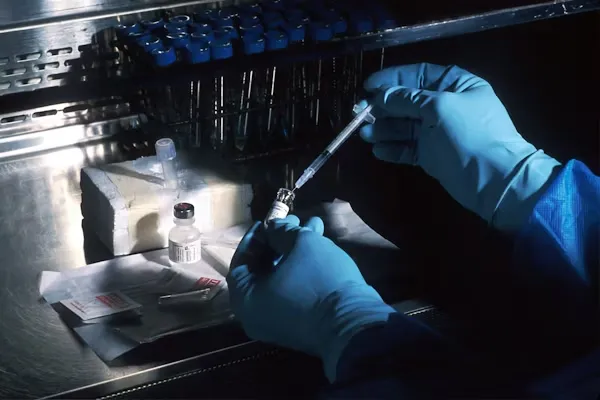If you’re a teacher—or planning to become one—you might be wondering: Do teachers get drug tested in California? It’s a fair question in a state with complex employment laws and evolving cannabis regulations.
Drug testing for teachers involves a delicate balance between ensuring school safety and respecting educators’ privacy rights. Understanding the rules can feel like walking through a legal maze… but don’t worry, we’ll break it down clearly.
And if you ever face legal challenges in this area, firms like Freeburg & Granieri APC in Pasadena can provide the strong legal advocacy you deserve.

Drug testing for teachers in California isn’t as straightforward as in many other states. Unlike certain industries that require frequent and mandatory testing, California schools generally follow strict privacy standards.
Whether teachers get tested depends on multiple factors—district policies, type of employment, and the circumstances triggering the test. Let’s explore the laws, policies, and practical realities.
California law permits drug testing but imposes limits to protect employee privacy. Employers must balance workplace safety with individual rights under the California Constitution.
Any testing program must be clearly justified, reasonable, and not overly invasive.
Federal law doesn’t mandate drug testing for teachers specifically. However, if teachers perform safety-sensitive functions (such as driving school buses), Department of Transportation (DOT) regulations may apply, requiring regular testing.
Public school teachers are protected by constitutional privacy rights.
Private schools, however, have more flexibility in their testing policies, as they are not bound by the same public sector rules. This distinction plays a major role in whether drug testing occurs.
Most California school districts do not routinely drug test teachers. Pre-employment testing is sometimes used, but random or periodic testing is rare unless there’s reasonable suspicion of drug or alcohol use.
Pre-employment testing focuses on screening candidates after a job offer has been made, but before hiring. Random testing, on the other hand, involves unannounced checks during employment—something public schools usually avoid due to privacy concerns.
Policies can differ widely. Some counties or districts implement stricter measures, particularly in rural areas or districts with heightened safety concerns. Others follow minimal testing protocols.
Before a teacher is officially hired, districts often conduct comprehensive background checks. This may include fingerprinting, criminal history checks, and in some cases, drug testing.
Typical panels include substances like THC, cocaine, opioids, amphetamines, and PCP. However, districts may vary in their exact testing scope.
Pre-employment testing must be clearly stated in the job application materials. Candidates must provide informed consent, and testing must comply with both federal and state guidelines.
Random drug testing of public school teachers is rare and often legally challenged. Courts generally find such testing unconstitutional unless the employee works in a safety-sensitive role.
When unwarranted random testing without probable cause leads to legal disputes and potential violations of constitutional rights, it highlights the complex legal landscape that requires careful navigation.
For any business or individual facing these challenging employment law matters, having expert counsel from Freeburg and Granieri APC is essential.
Freeburg and Granieri APC specializes in these nuanced areas and can provide the guidance needed to ensure compliance and defend your rights in complex labor and employment disputes.
In limited cases—such as teachers driving buses or supervising hazardous activities—random testing may be justified under federal or state safety regulations.
“Reasonable suspicion” arises when a school administrator has specific, documented reasons to believe a teacher is under the influence while on duty.
Examples include erratic behavior, slurred speech, impaired coordination, or the smell of drugs or alcohol. A single vague complaint usually isn’t enough.
Administrators must record their observations and follow district protocols. This protects both the teacher’s rights and the school’s legal standing.
If an accident occurs—say, during a lab experiment or on a field trip—teachers may be required to undergo testing to rule out impairment as a contributing factor.
School districts must provide a safe learning environment. Testing after serious incidents helps fulfill this obligation.
Teachers retain due process rights. They must be informed of the reason for testing and have the opportunity to contest results if needed.
Even though cannabis is legal recreationally in California, employers can still enforce drug-free workplace policies. Testing positive for THC can have employment consequences.
Teachers can legally use marijuana in private, but they may face disciplinary action if THC is detected during testing, particularly in pre-employment screenings.
Some districts adopt zero-tolerance policies, while others evaluate on a case-by-case basis. Ultimately, district policy dictates the outcome.
These employees are subject to federal DOT regulations, which require pre-employment, random, and post-incident testing.
Teachers overseeing activities involving potential hazards may face stricter testing protocols to ensure student safety.
DOT standards set the baseline for safety-sensitive roles, including regular and unannounced testing.
Article I, Section 1 of the California Constitution guarantees privacy. This is the foundation for limiting drug testing in public schools.
Drug testing must be narrowly tailored. Sweeping, suspicionless testing programs are generally unconstitutional for teachers.
California courts have consistently struck down random drug testing policies for teachers without a strong safety rationale.
Consequences for a positive test often follow a progressive discipline model: verbal warning, suspension, rehabilitation offers, or termination depending on severity.
Teachers may be placed on paid or unpaid leave while the district investigates test results and determines next steps.
Serious violations may lead to dismissal or referral to the California Commission on Teacher Credentialing, which can revoke licenses.
Unions play a key role in negotiating testing terms, ensuring teachers’ rights are protected during testing procedures.
Many union contracts include detailed guidelines on how and when testing can occur, protecting against arbitrary decisions.
Teachers can challenge testing or disciplinary actions through union-supported grievance procedures.
Cases such as Loder v. City of Glendale set important precedents, emphasizing privacy rights in public employment.
State standards often provide greater privacy protections than federal law, giving teachers stronger legal grounds for challenges.
Teachers have successfully challenged random testing when districts failed to demonstrate a compelling safety interest.
Private schools have more leeway and may implement broader testing programs. However, they must still comply with basic employment laws.
Substitutes may face different screening procedures, often determined by district policy and union agreements.
Private contracts may include specific drug testing obligations, which teachers should review carefully before signing.
Always start by reviewing the exact policy. Policies must be in writing and communicated clearly to employees.
Teachers have the right to understand the reasons for testing and the consequences of refusal or failure.
Before agreeing to any questionable testing, teachers should speak with an attorney experienced in California employment law.
When facing drug testing or disciplinary action, having experienced legal representation is critical. Freeburg & Granieri APC, located in Old Town Pasadena, provides top-tier civil litigation services. Our attorneys are graduates of highly regarded law schools and each case is handled by a lawyer with at least a decade of litigation and trial experience.
At Freeburg & Granieri, APC, you’ll have direct communication with your attorney—no underqualified case managers. We treat clients like family, not commodities, and fight for your best interests from intake to trial. Our office is open Monday to Friday, from 8:00 am to 5:00 pm.
If your rights are at stake, don’t wait—reach out for a consultation and protect your career.

So, do teachers get drug tested in California? The answer depends on context. Pre-employment testing is common, random testing is rare for public school teachers, and reasonable suspicion or post-incident testing is tightly regulated.
Privacy rights play a central role, making California unique compared to other states. Understanding your rights—and having strong legal support with Freeburg and Granieri APC when needed—can make all the difference.
Book a free consultation today.
No. Random testing is generally unconstitutional unless the teacher works in a safety-sensitive position.
They may lose the job offer. The district can rescind employment based on a failed result.
No, but a positive test can still have employment consequences despite medical use.
Yes, but refusal can lead to disciplinary action, including termination, depending on policy.
Yes. Private schools have more flexibility and may implement broader testing protocols.
Our clients become friends, confidants, and repeat customers. Former clients are our best referral source.
Do not be a commodity, find an attorney who treats your legal issue with the care it deserves.
